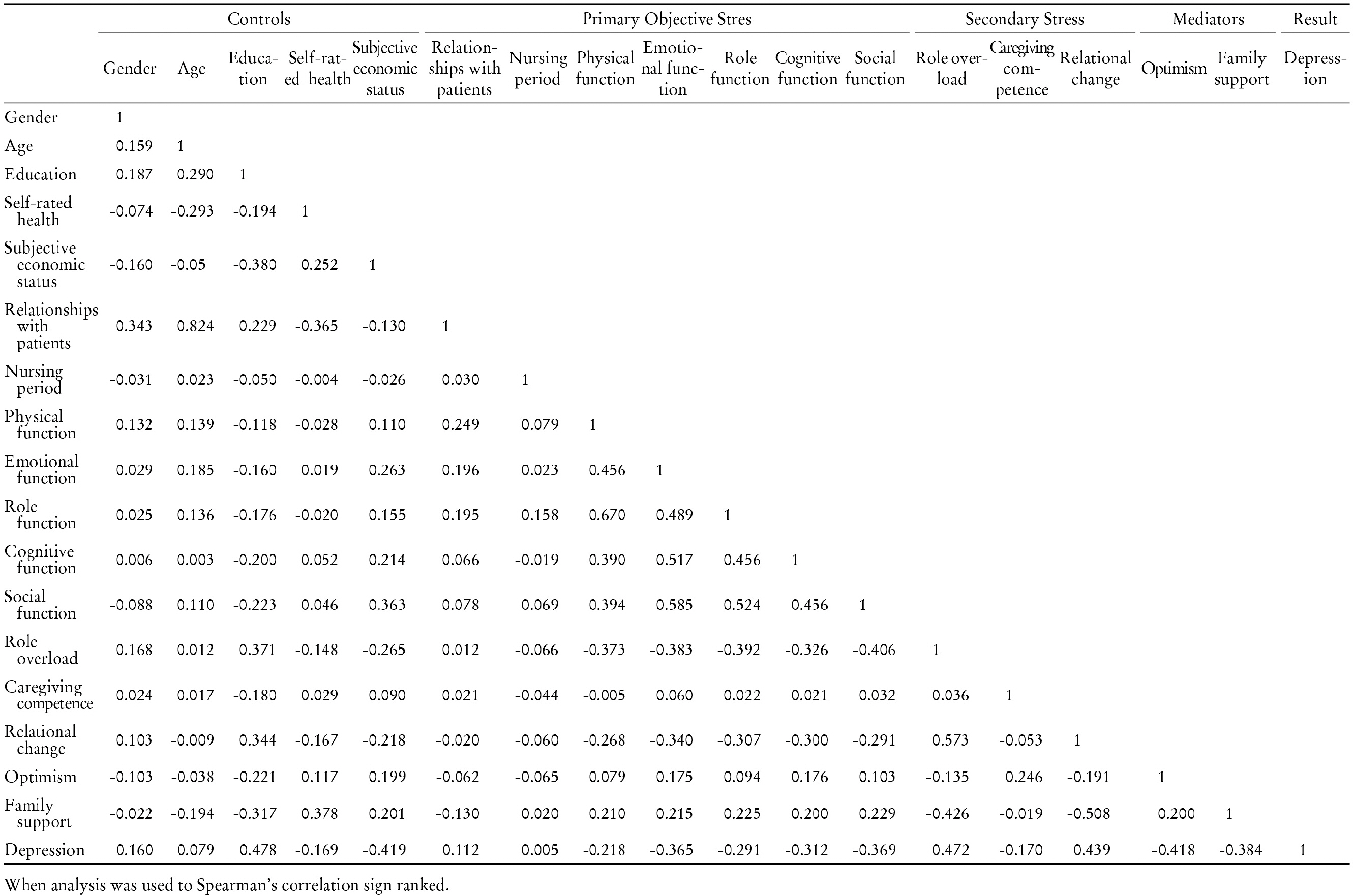References
1. Jung KW, Won YJ, Kong HJ, Oh CM, Cho H, Lee DH, et al. Cancer statistics in Korea: incidence, mortality, survival, and prevalence in 2012. Cancer Res Treat 2015;47(2):127–41.
2. Kim YL, Yoo MS. A study on the relationship between the burden and the social support of family caregivers of breast cancer patients. Korean J Fam Welf 2008;13(2):5–24.
3. McDaniel KR, Allen DG. Working and caregiving: the impact on caregiver stress, family-work conflict, and burnout. J Life Care Plan 2012;10(4):21–32.
4. Given BA, Northouse L. Who cares for family caregivers of patients with cancer? Clin J Oncol Nurs 2011;15(5):451–2.
5. Perreault A, Fothergill-Bourbonnais F, Fiset V. The experience of family members caring for a dying loved one. Int J Palliat Nurs 2004;10(3):133–43.
6. Grbich C, Parker D, Maddocks I. The emotions and coping strategies of caregivers of family members with a terminal cancer. J Palliat Care 2001;17(1):30–6.
7. Wong FK, Liu CF, Szeto Y, Sham M, Chan T. Health problems encountered by dying patients receiving palliative home care until death. Cancer Nurs 2004;27(3):244–51.
8. Given BA, Given CW, Kozachik S. Family support in advanced cancer. CA Cancer J Clin 2001;51(4):213–31.
9. Northfield S, Nebauer M. The caregiving journey for family members of relatives with cancer: how do they cope? Clin J Oncol Nurs 2010;14(5):567–77.
10. Grunfeld E, Coyle D, Whelan T, Clinch J, Reyno L, Earle CC, et al. Family caregiver burden: results of a longitudinal study of breast cancer patients and their principal caregivers. CMAJ 2004;170(12):1795–801.
11. Ptacek JT, Pierce GR, Ptacek JJ. Coping, distress, and marital adjustment in couples with cancer: an examination of the personal and social context. J Psychosoc Oncol 2007;25(2):37–58.
12. Kim Y, Shaffer KM, Carver CS, Cannady RS. Prevalence and predictor of depressive symptoms among cancer caregivers 5 years after the relative's cancer diagnosis. J Consult Clin Psychol 2014;82(1):1–8.
13. Weitzner MA, Haley WE, Chen H. The family caregiver of the older cancer patient. Hematol Oncol Clin North Am 2000;14(1):269–81.
14. Given B, Sherwood PR. Family care for the older person with cancer. Semin Oncol Nurs 2006;22(1):43–50.
15. Gaugler JE, Linder J, Given CW, Kataria R, Tucker G, Regine WF. The proliferation of primary cancer caregiving stress to secondary stress. Cancer Nurs 2008;31(2):116–23.
; quiz 124–5.
16. Hudson PL, Hayman-White K, Aranda S, Kristjanson LJ. Predicting family caregiver psychosocial functioning in palliative care. J Palliat Care 2006;22(3):133–40.
17. Braun M, Mikulincer M, Rydall A, Walsh A, Rodin G. Hidden morbidity in cancer: spouse caregivers. J Clin Oncol 2007;25(30):4829–34.
18. Nijboer C, Triemstra M, Tempelaar R, Sanderman R, van den Bos GA. Determinants of caregiving experiences and mental health of partners of cancer patients. Cancer 1999;86(4):577–88.
19. Northouse L, Williams AL, Given B, McCorkle R. Psychosocial care for family caregivers of patients with cancer. J Clin Oncol 2012;30(11):1227–34.
20. Carter PA, Acton GJ. Personality and coping: predictors of depression and sleep problems among caregivers of individuals who have cancer. J Gerontol Nurs 2006;32(2):45–53.
21. Given CW, Stommel M, Given B, Osuch J, Kurtz ME, Kurtz JC. The influence of cancer patients'symptoms and functional states on patients'depression and family caregivers'reaction and depression. Health Psychol 1993;12(4):277–85.
22. Schaefer C, Coyne JC, Lazarus RS. The health related functions of social support. J Behav Med 1981;4(4):381–406.
23. Irwin M, Artin KH, Oxman MN. Screening for depression in the older adult: criterion validity of the 10-Item center for epidemiological studies depression scale (CES-D). Arch Intern Med 1999;159(15):1701–4.
24. Chon KK, Rhee MK. Preliminary development of Korean version of CES-D. J Korean Med Sci 1992;11(1):65–76.
25. Herbert DL, Lucke JC, Dobson AJ. Depression: an emotional obstacle to seeking medical advice for infertility. Fertil Steril 2010;94(5):1817–21.
26. Kim H, Park SM, Jang SN, Kwon S. Depressive symptoms, chronic medical illness, and health care utilization: findings from the Korean Longitudinal Study of Ageing (KLoSA). Int Psychogeriatr 2011;23(8):1285–93.
27. Choi K, Bae H, Lim YO, Nam I, Yoon H, Kim Y, et al. A comparative study on the assessment of the quality of life by older cancer patients and caregivers and assessment of performance status by medical staff. Korean J Health Promot 2015;15(3):150–9.
28. Pearlin LI, Mullan JT, Semple SJ, Skaff MM. Caregiving and the stress process: an overview of concepts and their measures. Gerontologist 1990;30(5):583–94.
29. Scheier MF, Carver CS, Bridges MW. Optimism, pessimism, and psychological wellbeing. Optimism & pessimism: Implications for theory, research, and practice Washington: American Psychological Association; 2001. p. 189–216.
30. Given CW, Given B, Stommel M, Collins C, King S, Franklin S. The caregiver reaction assessment (CRA) for caregivers to persons with chronic physical and mental impairments. Res Nurs Health 1992;15(4):271–83.





